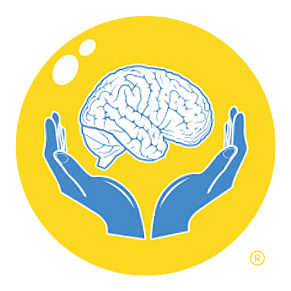Understanding Migraines vs. Tension Headaches: A Guide for Patients in Libertyville, IL and Kenosha, WI
Blog:Understanding Migraines vs. Tension Headaches: A Guide for Patients in Libertyville, IL and Kenosha, WI

Understanding Migraines vs. Tension Headaches: A Guide for Patients in Libertyville, IL and Kenosha, WI
Welcome to A Ray of Hope: Great Lakes Institute of Neurology and Psychiatry, your trusted neurology and psychiatry care provider in Northern Illinois and Southeast Wisconsin. We understand how debilitating headaches can be and how they can impact your daily life. Our goal is to help you identify and treat your headaches effectively. Today, we will discuss the differences between migraines and tension headaches, two of the most common types of headaches that bring patients to our clinic.
One of our wonderful physicians, Carol Jandron PA-C, explains the difference between the two in a video. Go to our social media: INSTAGRAM & FACEBOOK to watch! Follow us there to watch more informative videos on the horizon about various conditions or ailments you or a loved one may be suffering from!
What Are Migraines?
Migraines are a type of headache that often comes with intense, throbbing pain, usually on one side of the head. They are more than just a headache; migraines can cause significant disability and can last for hours or even days. Here are some key features of migraines:
Symptoms of Migraines
- Severe, pulsating pain: Typically located on one side of the head.
- Nausea and vomiting: Many migraine sufferers experience gastrointestinal symptoms.
- Sensitivity to light and sound: Bright lights and loud noises can exacerbate migraine pain.
- Aura: Some individuals experience visual disturbances, such as flashes of light, blind spots, or tingling in the arms and legs, before the onset of the headache.
Triggers for Migraines
- Food and drink: Aged cheeses, salty foods, and alcohol (especially wine) are common culprits.
- Stress: High levels of stress can precipitate a migraine attack.
- Environmental factors: Believe it or not, changes in weather or barometric pressure can also trigger migraines.
What Are Tension Headaches?
Tension headaches, on the other hand, are generally less severe than migraines but can still cause significant discomfort. They are often described as a feeling of a tight band around the head. Here’s what you need to know about tension headaches:
Symptoms of Tension Headaches
- Dull, aching pain: Typically felt across the forehead, temples, or the back of the head and neck.
- Mild to moderate pain: Unlike migraines, tension headaches do not usually cause severe pain.
- Tightness or pressure: Many people describe the sensation as a clamp squeezing the skull.
- No nausea or vomiting: Unlike migraines, tension headaches are not typically associated with gastrointestinal symptoms.
Triggers for Tension Headaches
- Stress: Both physical and emotional stress can trigger tension headaches.
- Poor posture: Sitting or standing in one position for long periods can strain neck and scalp muscles.
- Eye strain: Spending long hours in front of a computer screen can contribute to tension headaches.
- Fatigue: Lack of sleep and exhaustion are common triggers.
Diagnosis and Treatment at A Ray of Hope
At A Ray of Hope, we specialize in the diagnosis and treatment of both migraines and tension headaches. Our team of experienced neurologists and psychiatrists will work with you to develop a personalized treatment plan.
Treatment Options
- Therapies: We offer a wide array of therapy options for both Migraines and Tension Headaches such as Botox Therapy, Sphenocath, and more.
- Medications: Depending on the type and severity of your headaches, we may prescribe pain relief medications or preventive medications.
- Lifestyle Modifications: We will guide lifestyle changes to help reduce headache frequency and severity, such as stress management techniques, dietary changes, and other adjustments.
Why Choose A Ray of Hope?
Serving the communities of Libertyville, IL, and Kenosha, WI, A Ray of Hope is dedicated to providing compassionate, comprehensive care. Our team is committed to staying updated with the latest advancements in neurology and psychiatry to ensure you receive the best possible care.
Patient-Centered Approach
- Personalized Care: We understand that each patient is unique and deserves a tailored treatment plan.
- Accessible Care: With locations in both Libertyville and Kenosha, we are conveniently situated to serve our community.
If you or a loved one is struggling with migraines or tension headaches, don’t suffer in silence. Contact A Ray of Hope at (847)-816-6335 today to schedule an appointment and take the first step towards a headache-free life. Let us help you find relief and improve your quality of life.
A Ray of Hope: Great Lakes Institute of Neurology and Psychiatry
- Libertyville, IL Office: 1860 W. Winchester Rd, STE 106, Libertyville, IL, (847-816-6335)
- Kenosha, WI Office: 4600 Green Bay Rd, Kenosha, WI, (847-816-6335)
For more information, look through our website or call us to schedule an appointment. We look forward to helping you achieve optimal health and well-being.




